Whether you’re interested in decentralized finance (DeFi) or governance or want to learn about the latest trends in the crypto space, this list of DAOs is a must-read. So for your attention 10 TOP decentralized autonomous organizations (DAOs):

DAO Crypto List: More Information About Every Solution
It’s important to note that the popularity and ranking of the DAO crypto list can change rapidly in the cryptocurrency and blockchain space. Additionally, before investing, it’s always important to thoroughly research and understand any DAO’s goals, features, and potential risks.
MakerDAO
In the first place in the list of DAOs, we have MakerDAO. MarketDAO is one of the first decentralized autonomous organizations (DAOs) built on the Ethereum blockchain. It was founded in 2015 and has become a leading player in decentralized finance (DeFi). MakerDAO’s flagship product is the Dai stablecoin. The coin which is pegged to the US dollar and provides users with a stable and decentralized alternative to traditional fiat currency. So Dai is created through a process known as collateralized debt position (CDP). Users deposit collateral in ETH to receive a loan in Dai. The system is designed to be self-sustaining and has built-in mechanisms to manage the stability of the Dai-USD peg.
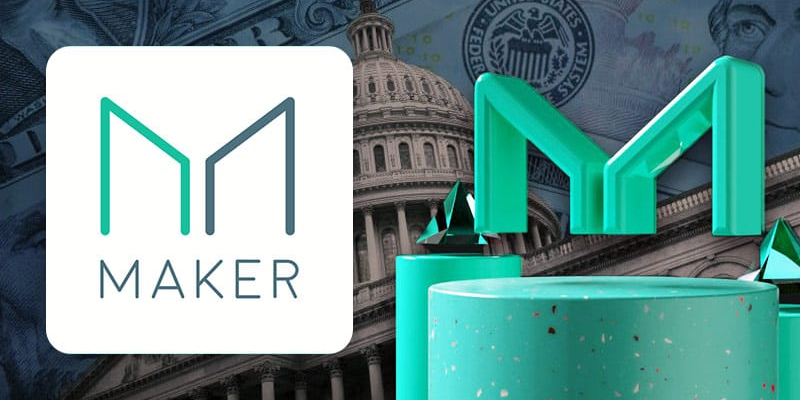
Compound
In second place in the list of DAOs is Compound. The compound is a decentralized lending and borrowing platform founded in 2018. The forum operates on the Ethereum blockchain and allows users to earn interest on their assets or borrow funds by depositing holdings as collateral. So the interest rates on Compound are set by supply and demand, with the algorithm adjusting the rates dynamically to ensure liquidity. The platform provides an open financial system accessible to everyone, and smart contracts ensure that the system is transparent, secure, and tamper-proof.
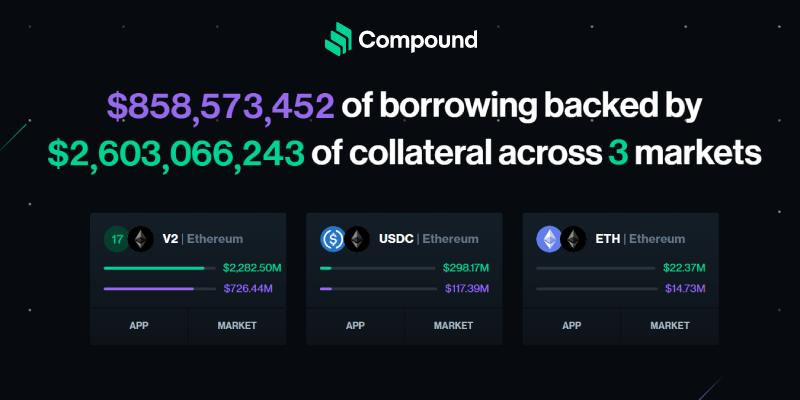
Uniswap
In third place in the list of DAOs, we have Uniswap. Uniswap is a decentralized exchange (DEX) that was launched in 2018. The platform operates on the Ethereum blockchain and uses an automated market maker (AMM) model to facilitate trades. This means that users can trade directly with each other without the need for an intermediary, providing a more decentralized and user-friendly trading experience. Also, Uniswap supports many cryptocurrencies, including ERC-20 tokens, and has become a popular platform for trading and liquidity provision.
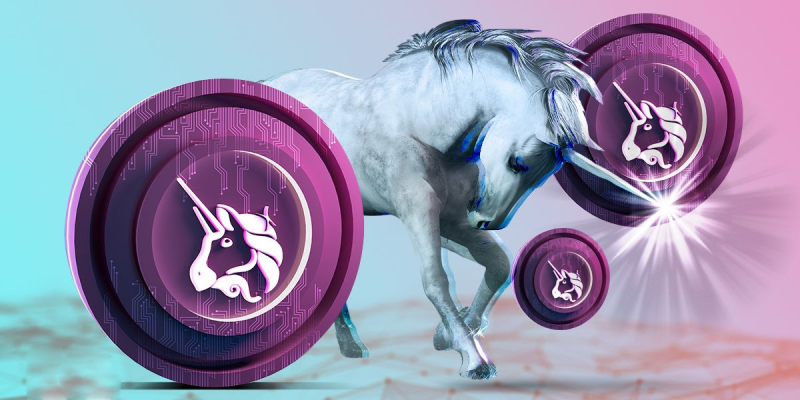
Kyber Network
Kyber Network is a decentralized exchange that was founded in 2017. The platform operates on the Ethereum blockchain and provides users with a secure and user-friendly platform for trading cryptocurrencies. Moreover, Kyber Network uses a network of reserves to provide liquidity for users to trade a wide range of cryptocurrencies. The forum is designed to be fast, efficient, and secure. In addition to trading, Kyber Network also provides APIs for developers to integrate its services into their decentralized applications (dApps).
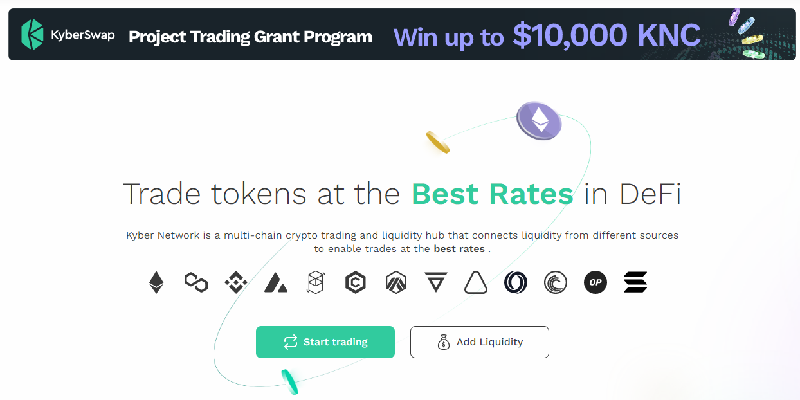
Aave
One more solution in the list of DAOs – Aave. It’s decentralized lending and borrowing platform that was founded in 2017. The forum operates on the Ethereum blockchain and allows users to lend or borrow a wide range of cryptocurrencies. So Aave uses a unique tokenization system that allows users to earn interest on their assets and pay lower borrowing costs, providing an open and accessible financial system for everyone. Aave is also known for its innovative flash loan feature, which allows users to borrow funds without providing collateral, making it a popular platform for algorithmic trading and DeFi applications.
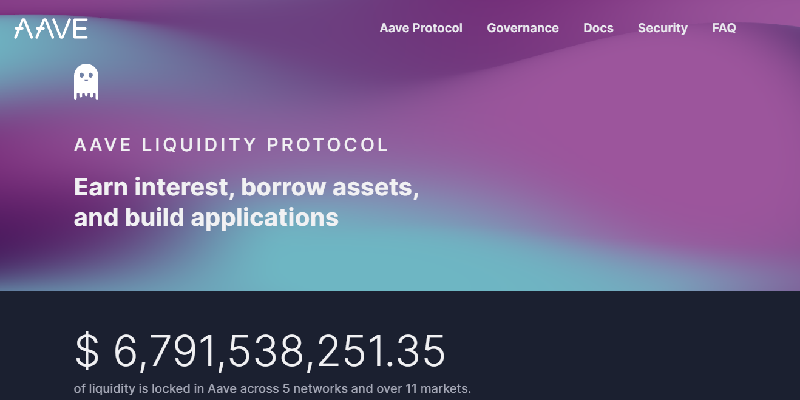
DAOstack
The venue was launched in 2018 and provided a modular and scalable architecture that allows users to build complex governance structures and make collective decisions. DAOstack delivers a user-friendly interface for creating and managing DAOs, and the platform is designed to be highly customizable and flexible. DAOstack aims to provide a scalable and user-friendly decentralized governance and decision-making platform.
Aragon
Aragon is a decentralized platform that provides the tools and infrastructure for creating and managing decentralized autonomous organizations (DAOs). The forum was launched in 2017 and provided a user-friendly interface for creating and managing DAOs and a decentralized court system for resolving disputes. So Aragon aims to offer a decentralized platform for organizations to govern themselves and interact with each other, providing a more open and transparent system for decentralized governance.

Gnosis
Gnosis is a decentralized platform for building prediction markets and exchanging information. The platform allows users to create and participate in markets that predict the outcome of events and earn rewards for making accurate predictions. So Gnosis aims to provide a decentralized platform for knowledge exchange and collective decision-making.
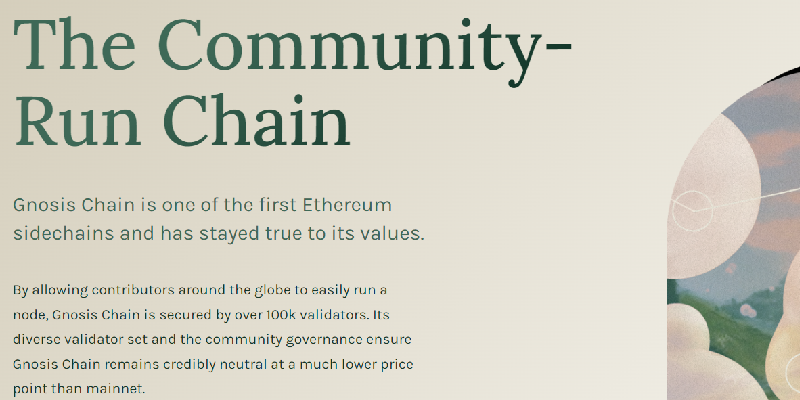
dxDAO
dxDAO is a decentralized autonomous organization that seeks to provide a decentralized platform for trading and governance of decentralized exchanges. So the platform uses a unique voting system that allows users to make decisions on the direction and development of the forum. dxDAO aims to provide a decentralized platform for decentralized exchanges to govern themselves.
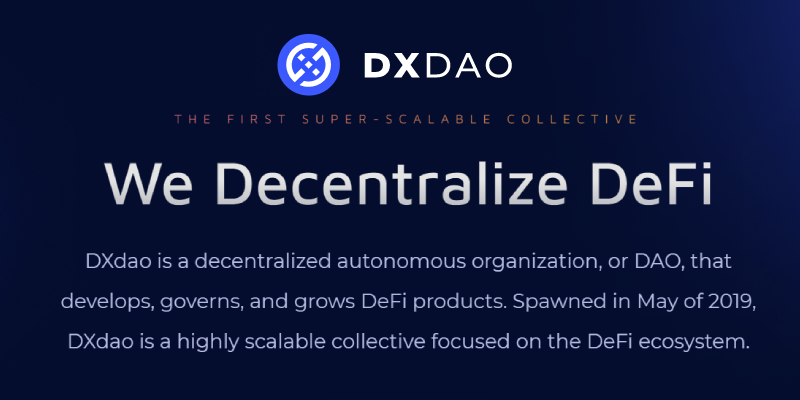
Yearn.finance
Last but not least in the list of DAOs is Yearn.finance. It’s a decentralized platform that provides yield optimization and asset management services. The platform uses smart contracts and algorithms to invest automatically and trade assets to offer the highest returns. Also, Yearn.finance aims to provide a decentralized and accessible platform for yield optimization and asset management.
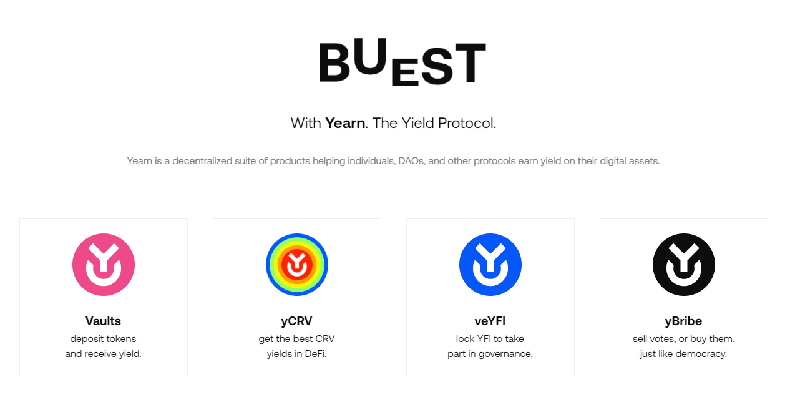
Comparison between different DAOs
| MakerDAO | MakerDAO is a decentralized lending platform that allows users to take out loans in the form of Dai, a stablecoin pegged to the US dollar. |
| Compound | Compound is a decentralized finance (DeFi) platform that allows users to earn interest on their crypto assets or borrow assets using them as collateral. |
| Uniswap | Uniswap is a decentralized exchange (DEX) that allows users to trade Ethereum-based tokens without intermediaries. |
| Kyber Network | Kyber Network is a decentralized exchange that allows users to exchange and trade cryptocurrencies with high liquidity. |
| Aave | Aave is a decentralized lending platform that allows users to earn interest on their deposits and borrow assets without collateral. |
| DAOstack | DAOstack is a platform for creating and managing decentralized autonomous organizations (DAOs). |
| Aragon | Aragon is a platform for creating and managing decentralized organizations that allows for decentralized governance. |
| Gnosis | Gnosis is a decentralized platform for prediction markets. |
| dxDAO | dxDAO is a decentralized autonomous organization that governs the DutchX decentralized exchange. |
| Yearn.finance | Yearn.finance is a decentralized finance platform that provides yield optimization services for users’ crypto assets. |
Decentralized Autonomous Organization Meaning
Decentralized autonomous organizations (DAOs) are a relatively new phenomenon that has taken the blockchain and cryptocurrency world by storm. So DAO is a decentralized and self-governed entity that operates on a blockchain, using smart contracts to automate decision-making and manage assets. The rise of DAOs marks a shift towards a more open, transparent, and decentralized system of governance, where decisions are made collectively by stakeholders rather than by a centralized authority.
Key Features of Decentralized Autonomous Organizations
| Decentralization | Decentralized Autonomous Organizations (DAOs) are designed to be decentralized. They operate on a blockchain network, and the decision-making process is carried out by the stakeholders rather than a central authority. This decentralization is achieved through smart contracts, which are self-executing programs that enforce the rules and regulations of the DAO. |
| Transparency | Transparency is another key feature of DAOs, as all transactions and decisions made within the organization are recorded on a public ledger that is accessible to anyone with an internet connection. This ensures that the inner workings of the DAO are transparent and can be audited by anyone. |
| Immutability | The immutability of the blockchain network, which provides the backbone for the DAO, ensures that it cannot be altered or deleted once a decision has been recorded. |
| Community Governance | Finally, DAOs rely on community governance, where stakeholders have a voice in decision-making and can influence the organization’s direction through voting. These four critical features of DAOs work together to create a more open, transparent, and democratic system of governance. |
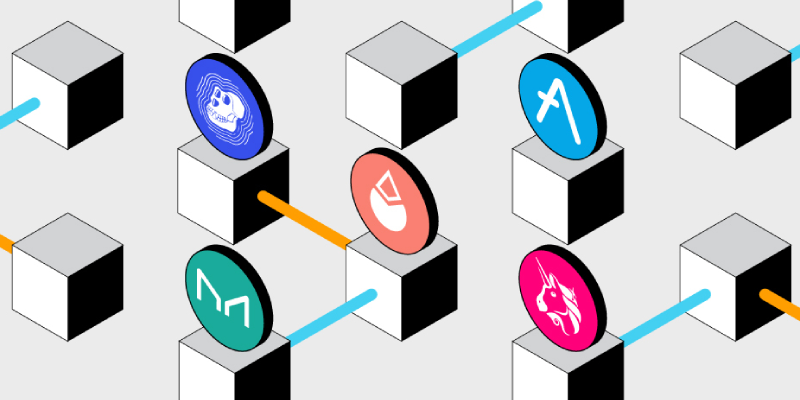
Potential Use Cases of DAOs
Also, Decentralized Autonomous Organizations (DAOs) can potentially disrupt a wide range of industries and applications.
- One of the most popular use cases for DAOs is decentralized finance (DeFi). DeFi can manage decentralized financial products and services, such as lending and borrowing platforms, stablecoins, and prediction markets.
- Another potential use case is supply chain management. Also a DAO can increase transparency and efficiency in supply chain operations by automating processes and providing real-time tracking of goods and services.
- DAOs are also being explored in gaming and NFT (non-fungible tokens). They can manage virtual assets and provide players with a more secure and transparent gaming experience.
- Finally, DAOs have the potential to revolutionize social impact and charitable organizations by enabling them to operate more efficiently and effectively and by empowering their stakeholders to make decisions about how their resources are used.
In conclusion, these are just a few examples of the many potential use cases for DAOs. As the technology continues to evolve, new and innovative use cases will likely emerge.
FAQ about DAO (Decentralized Autonomous Organization)
❓ What is a DAO?
A DAO is a decentralized organization that operates on a blockchain network and is governed by stakeholders through smart contracts.
❓ How do DAOs work?
DAOs use smart contracts to enforce rules and automate decision-making, with stakeholders participating through voting.
❓ What are the benefits of DAOs?
DAOs provide a more transparent, democratic, and secure system of governance.
❓ What are popular DAOs?
MakerDAO, Compound, Uniswap, Kyber Network, Aave, DAOstack, Aragon, MolochDAO, Gnosis, and Curve.fi are popular DAOs.
❓ What are DAOs used for?
DAOs have potential use cases in DeFi, supply chain management, gaming, NFTs, and social impact.
❓ Are DAOs regulated?
The regulatory landscape for DAOs is still developing, with varying regulations by jurisdiction.